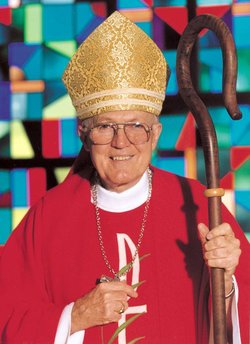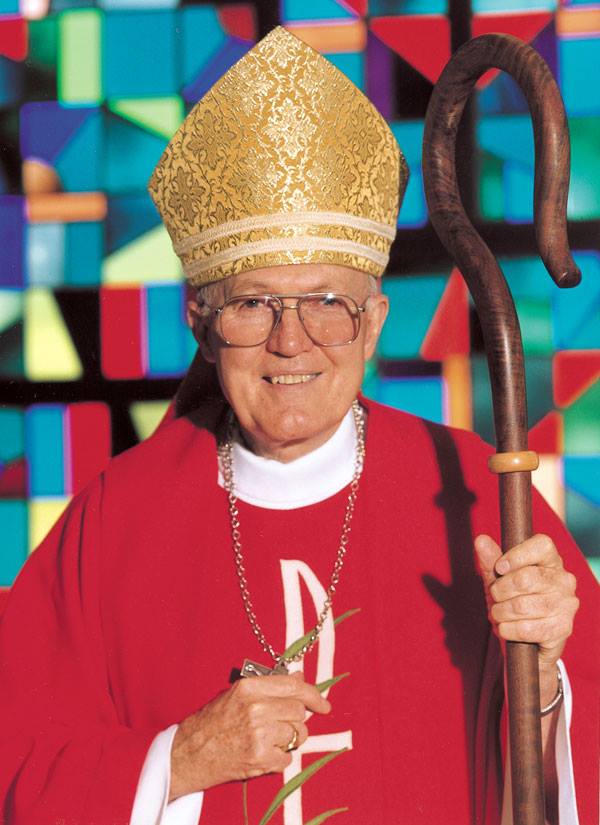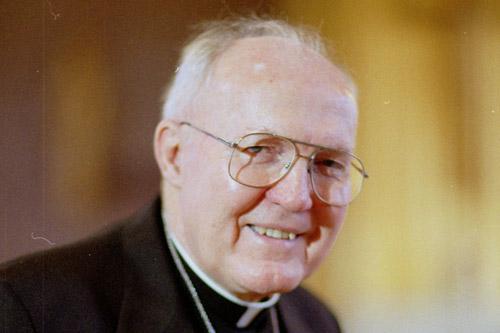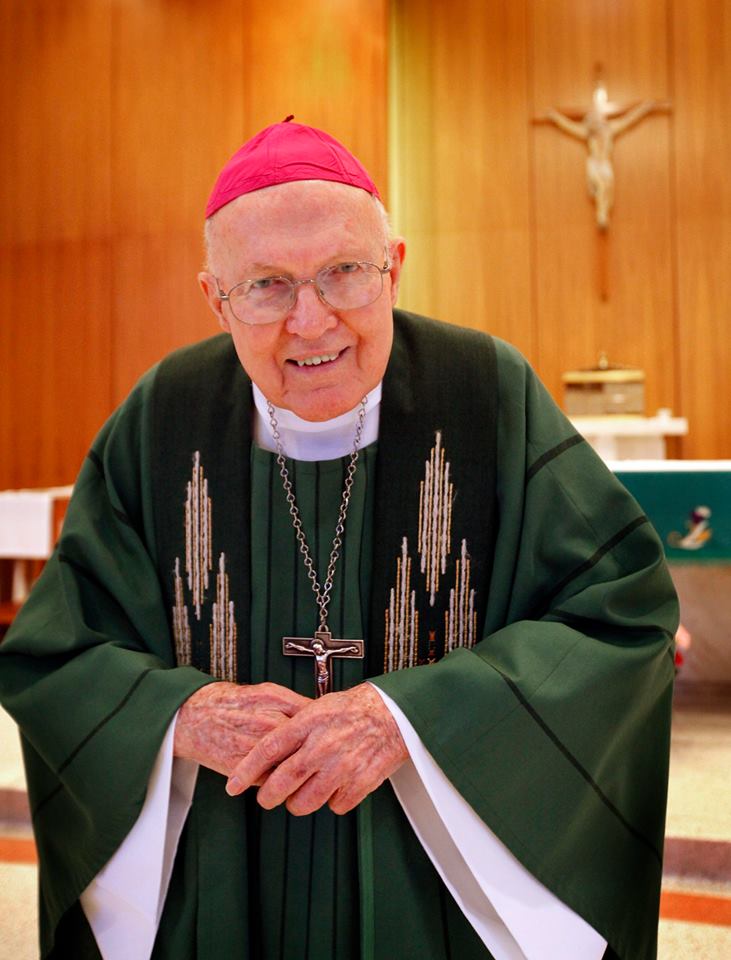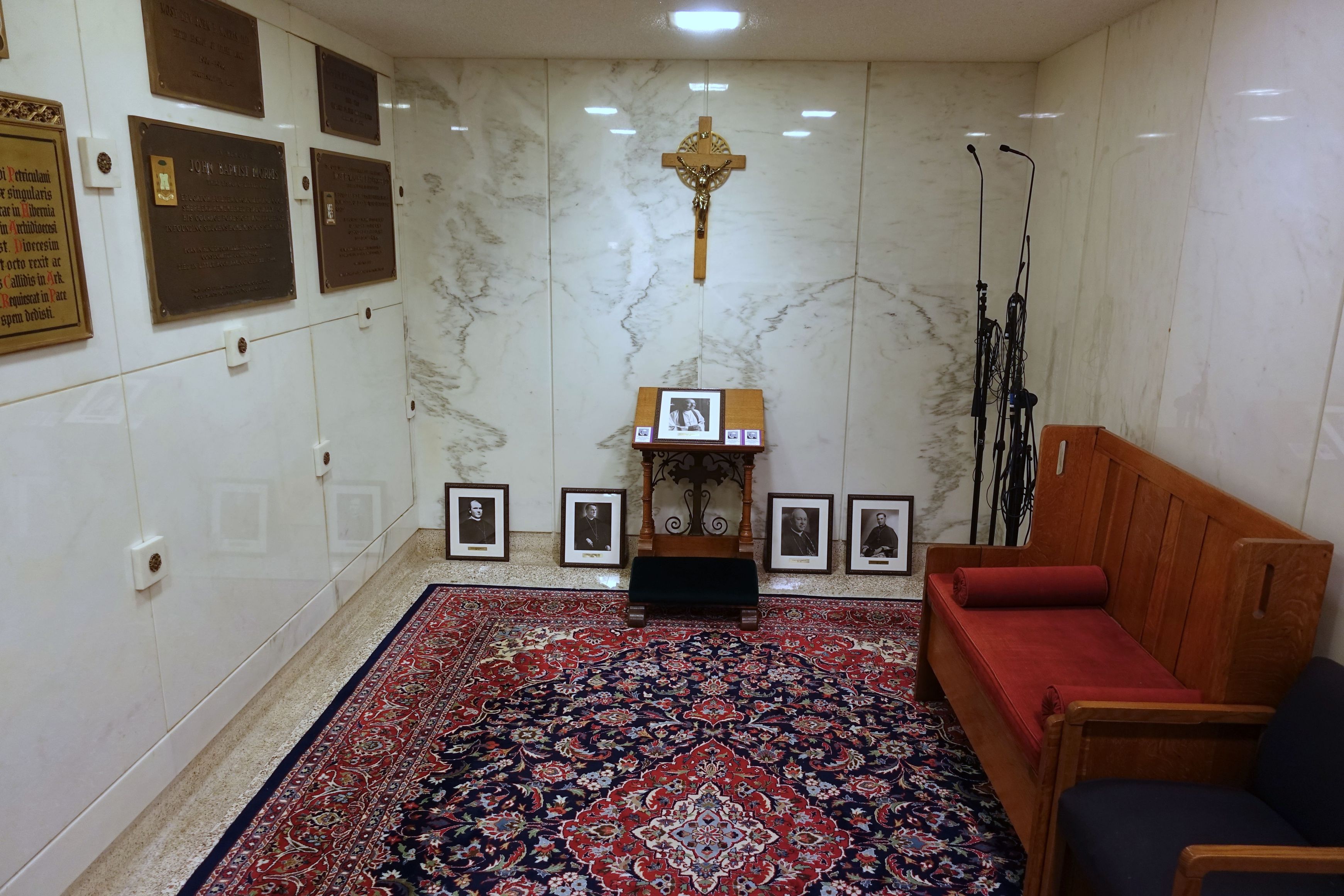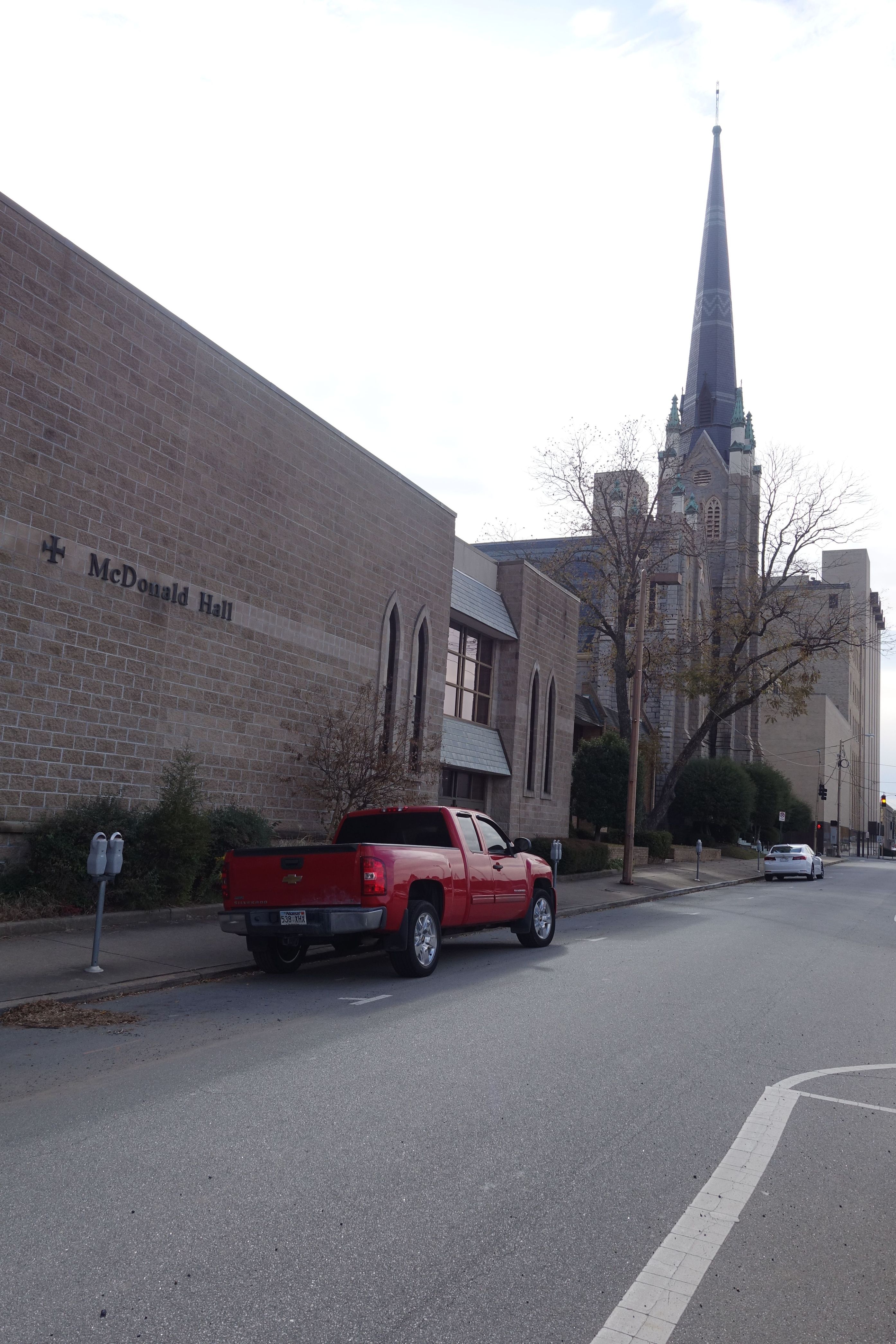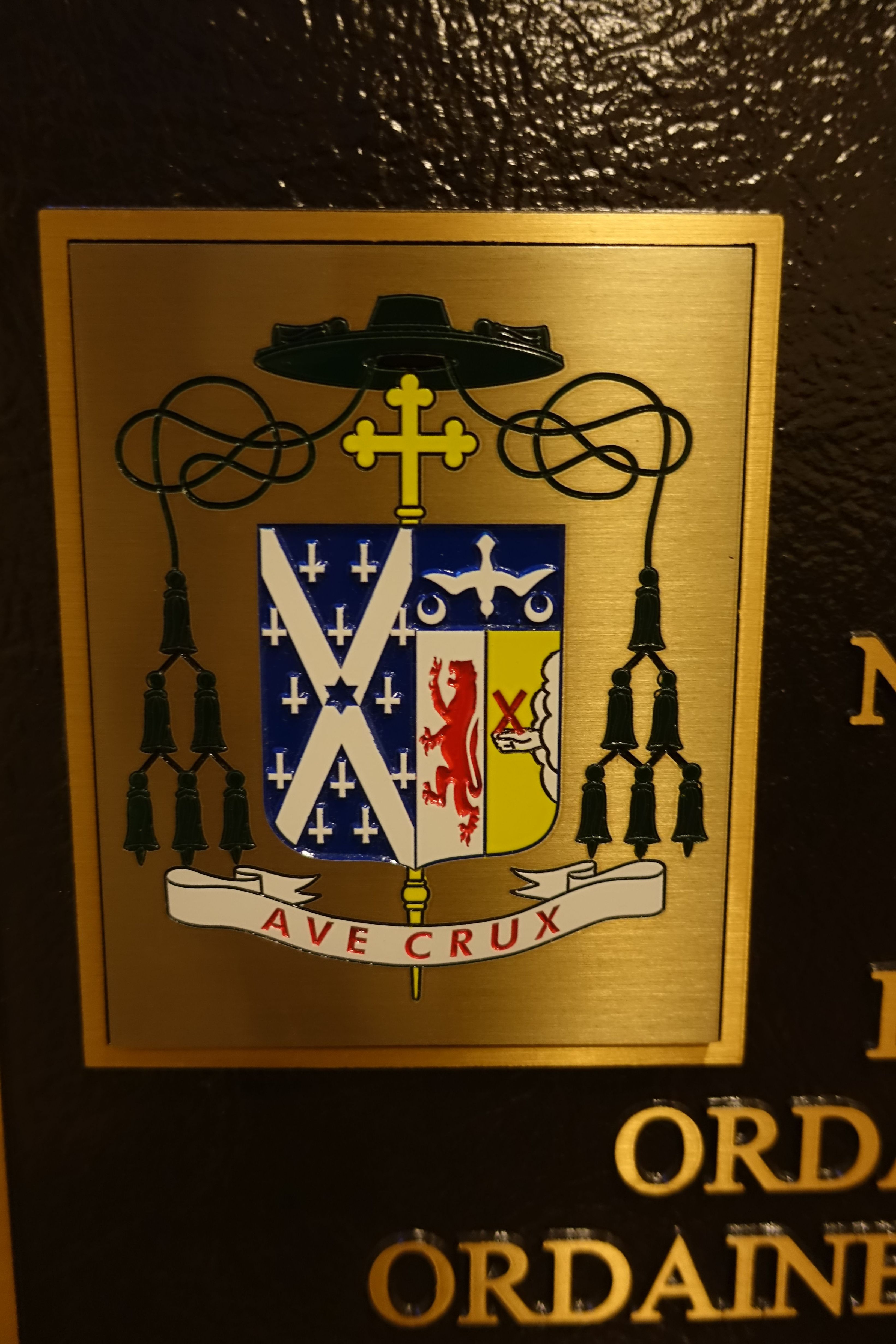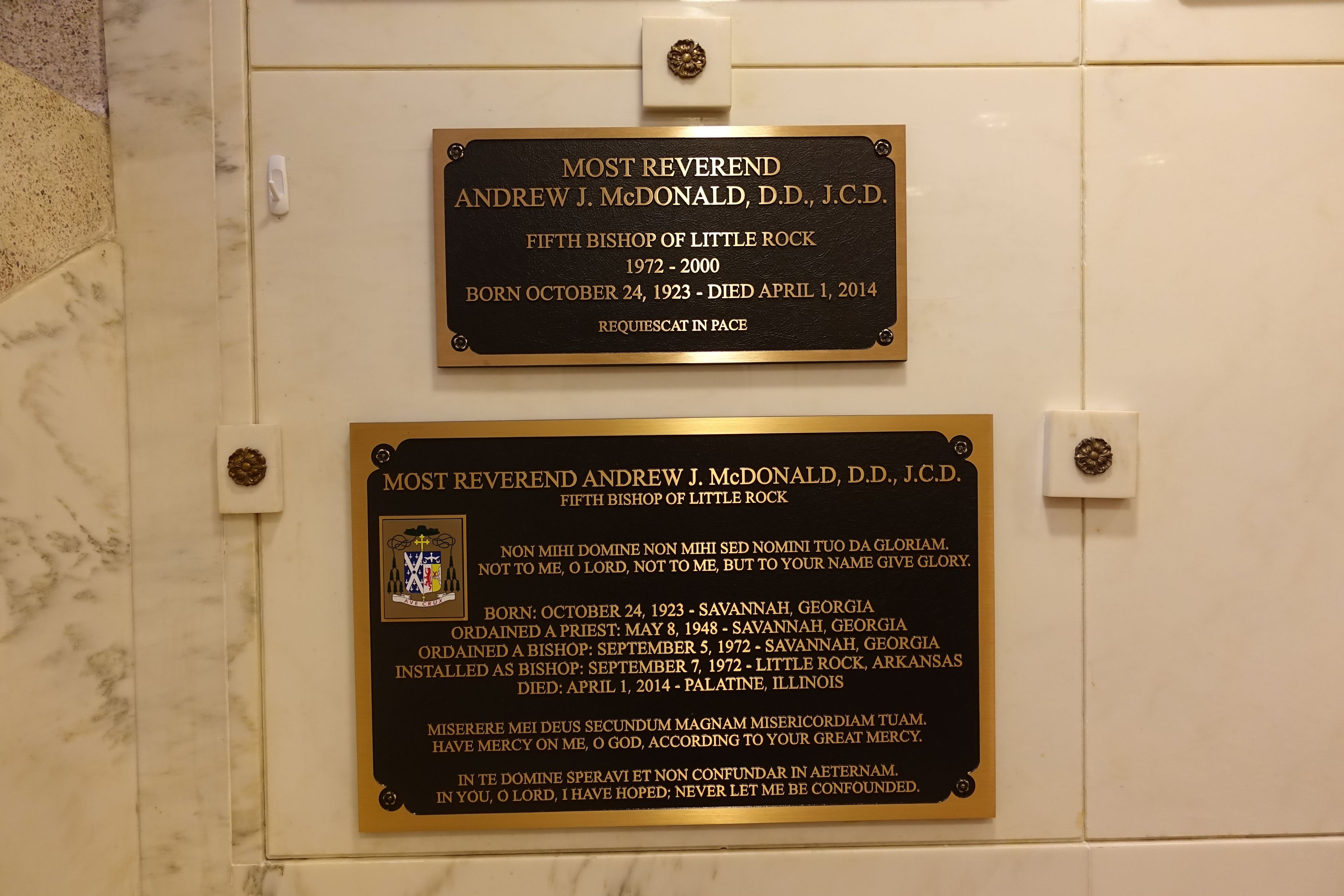Named Bishop of the Diocese of Little Rock by Pope Paul VI, he received his episcopal consecration in Savannah on September 5, 1972, from Archbishop Thomas Joseph McDonough, assisted by Archbishop Philip Matthew Hannan and Bishop Gerard Louis Frey and was installed as the Fifth Ordinary of Little Rock two days later at the Cathedral of St. Andrew in Little Rock, Arkansas.
He traveled Arkansas as the bishop for 28 years, using his humor, preaching, and concern for others to shepherd the Diocese of Little Rock. During his episcopacy, there were many accomplishments and new initiatives as he implemented the changes resulting from the Second Vatican Council. Focusing in particular on the increased participation of the laity in the mission of the church, he encouraged the establishment of numerous lay movements, including Cursillo, Search, Catholic charismatic renewal,
Marriage Encounter, Retrovaille, youth ministry, and campus ministry. He established several advisory boards, including the Council for Black Catholics, the Clergy Welfare Board, the diocesan Council for Women Religious, and the diocesan Building Commission. He worked to provide affordable housing for the elderly through the establishment of Good Shepherd Home in Little Rock and Christopher Homes throughout the state. He spoke and worked for the poor, supporting the establishment of Catholic Charities of Arkansas. He was active in ecumenical and interreligious efforts and worked with the Arkansas Coalition to Abolish the Death Penalty. He reached out to the Vietnamese and Hispanic Catholics who moved into the diocese. Catholic schools and religious education were always important to Bishop McDonald. He supported the growth and development of Little Rock Scripture Study, continuing education for the clergy, and the restoration of the permanent diaconate. He always encouraged vocations to the permanent diaconate, priesthood, and religious life. During his tenure, the Cathedral of St. Andrew and St. John Center in Little Rock were renovated, and St. John Manor was opened to provide a residence for retired diocesan priests.
Of all his efforts, none were more important to Bishop McDonald than his work for the unborn. He was a member of the U.S. Conference of Catholic Bishops' Pro-Life Committee, participated every year in the Arkansas March for Life, and inaugurated an annual Mass for Life. In 1982, he wrote to Mother Teresa of Calcutta, who responded with a personal visit to Little Rock during which she agreed to send the Missionaries of Charity to operate Abba House, a home for pregnant women and their children. He opened Catholic Adoptions Services and supported the implementation of Project Rachel, an outreach to women suffering from the consequences of abortion.
Retiring from the pastoral government of his see in the year 2000 at 76 years of age, McDonald continued to live in Little Rock until March 2002, when he became chaplain at St. Joseph's Home in Palatine, Illinois.
4th Degree member of the Knights of Columbus Assembly #173 in Savannah and a member of the Equestrian Order of the Holy Sepulchre of Jerusalem, over the years, he led many pilgrimages to Rome, Lourdes, Ireland, and the Holy Land. He enjoyed playing a quick game of golf and keeping up with his favorite football teams.
The Bishop passed away on Tuesday, April 1, 2014, at St. Joseph Home for the Elderly in Palatine, Illinois, aged 90, after months of declining health.
Reception of the Bishop's body took place at the Cathedral of St. Andrew in Little Rock at 6 pm. on Monday, April 7. Mass of Christian Burial and interment were also held at the named Cathedral the following day. Prior to the transfer of his body to Little Rock, a special visitation, rosary, and Funeral Mass was held at St. Joseph's Home in Palatine.
Named Bishop of the Diocese of Little Rock by Pope Paul VI, he received his episcopal consecration in Savannah on September 5, 1972, from Archbishop Thomas Joseph McDonough, assisted by Archbishop Philip Matthew Hannan and Bishop Gerard Louis Frey and was installed as the Fifth Ordinary of Little Rock two days later at the Cathedral of St. Andrew in Little Rock, Arkansas.
He traveled Arkansas as the bishop for 28 years, using his humor, preaching, and concern for others to shepherd the Diocese of Little Rock. During his episcopacy, there were many accomplishments and new initiatives as he implemented the changes resulting from the Second Vatican Council. Focusing in particular on the increased participation of the laity in the mission of the church, he encouraged the establishment of numerous lay movements, including Cursillo, Search, Catholic charismatic renewal,
Marriage Encounter, Retrovaille, youth ministry, and campus ministry. He established several advisory boards, including the Council for Black Catholics, the Clergy Welfare Board, the diocesan Council for Women Religious, and the diocesan Building Commission. He worked to provide affordable housing for the elderly through the establishment of Good Shepherd Home in Little Rock and Christopher Homes throughout the state. He spoke and worked for the poor, supporting the establishment of Catholic Charities of Arkansas. He was active in ecumenical and interreligious efforts and worked with the Arkansas Coalition to Abolish the Death Penalty. He reached out to the Vietnamese and Hispanic Catholics who moved into the diocese. Catholic schools and religious education were always important to Bishop McDonald. He supported the growth and development of Little Rock Scripture Study, continuing education for the clergy, and the restoration of the permanent diaconate. He always encouraged vocations to the permanent diaconate, priesthood, and religious life. During his tenure, the Cathedral of St. Andrew and St. John Center in Little Rock were renovated, and St. John Manor was opened to provide a residence for retired diocesan priests.
Of all his efforts, none were more important to Bishop McDonald than his work for the unborn. He was a member of the U.S. Conference of Catholic Bishops' Pro-Life Committee, participated every year in the Arkansas March for Life, and inaugurated an annual Mass for Life. In 1982, he wrote to Mother Teresa of Calcutta, who responded with a personal visit to Little Rock during which she agreed to send the Missionaries of Charity to operate Abba House, a home for pregnant women and their children. He opened Catholic Adoptions Services and supported the implementation of Project Rachel, an outreach to women suffering from the consequences of abortion.
Retiring from the pastoral government of his see in the year 2000 at 76 years of age, McDonald continued to live in Little Rock until March 2002, when he became chaplain at St. Joseph's Home in Palatine, Illinois.
4th Degree member of the Knights of Columbus Assembly #173 in Savannah and a member of the Equestrian Order of the Holy Sepulchre of Jerusalem, over the years, he led many pilgrimages to Rome, Lourdes, Ireland, and the Holy Land. He enjoyed playing a quick game of golf and keeping up with his favorite football teams.
The Bishop passed away on Tuesday, April 1, 2014, at St. Joseph Home for the Elderly in Palatine, Illinois, aged 90, after months of declining health.
Reception of the Bishop's body took place at the Cathedral of St. Andrew in Little Rock at 6 pm. on Monday, April 7. Mass of Christian Burial and interment were also held at the named Cathedral the following day. Prior to the transfer of his body to Little Rock, a special visitation, rosary, and Funeral Mass was held at St. Joseph's Home in Palatine.
Sponsored by Ancestry
Advertisement
Explore more
Sponsored by Ancestry
Advertisement
